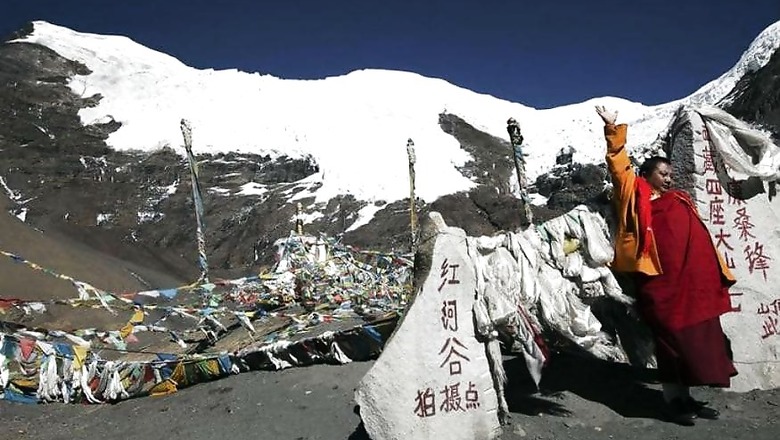
views
Koralal: Twice a year, a normally deserted border checkpoint high on the Tibetan plateau throngs with activity as traders from Nepal flock to do business with their giant northern neighbour China.
A biannual trade fair in Tibet offers a rare opportunity for those living in the remote former Buddhist kingdom of Upper Mustang in Nepal to cross the usually closed border into China, which is cultivating closer ties with the Himalayan nation.
"This trade is very important for us because we live in such an isolated area," said trucker Pasang Gurung, who was driving to China for the fair.
"Access to Chinese customers and products makes our lives much easier... I wish the border were open all the time," he said.
The border is usually closed for security reasons as Upper Mustang has history as a base for the Tibetan resistance.
But authorities in Nepal are increasingly looked to strengthen economic ties with China and reduce its dependence on its other giant neighbour India.
But it will have a long way to go in order to accomplish that. Bilateral trade with India between July 2014 and June 2015 amounted to nearly USD 4.5 billion, dwarfing China's $882 million.
An energy agreement between Kathmandu and Beijing in March ended India's monopoly over fuel supplies to Nepal, although it remains the biggest supplier by far.
That deal was prompted by a months-long blockade at the border with India to protest the terms of a new national constitution that led New Delhi to halt supplies, leading to crippling shortages.
Kathmandu accused New Delhi of imposing an "unofficial blockade" in support of the protesters, an ethnic community that shares close family links with Indians across the border -- a claim India denied.
Sujeev Shakya, chairman of the Nepal Economic Forum think tank, says that even before the blockade India had a reputation in Nepal for being slow to deliver.
A number of Indian hydropower projects have stalled due to disagreements over the terms of the deal, while China has pressed ahead.
One 60-megawatt power plant is under construction and a 750-megawatt joint venture worth USD 1.6 billion is due for completion by December 2019.
"The perception here is that the Chinese tend to deliver while India keeps talking," Shakya told AFP.
"Over the years, China has gained more credibility in Nepal because of the pace at which they have put up infrastructure projects."


















Comments
0 comment